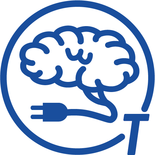Machine Learning - ML Team

In recent years, machine learning (ML) has become an integral part of our everyday lives. ML or, more generally, artificial intelligence (AI) supports, influences and analyses us in a wealth of different everyday situations. Whether we are using a smartphone or other multimedia devices, shop (online), or drive our cars, in some way or anyother, we interact with AI. Deep Learning in particular, i.e., machine learning methods based on artificial neural networks, are ubiquitous.
Even more, ML and AI have already generated important new impulses in science, and we expected that this influence will only grow stronger and affect an even broader field of scientific disciplines. This development raises interest in a deeper, scientifically sound understanding of how machine learning methods work. Furthermore, scientists in a wide variety of different research areas are under an increasing pressure to possess a fundamental understanding for the application and design of such methods.
This is equally true for the Acoustics Research Institute (ARI), where a modern approach to application-open basic research in the field of acoustics has led to an increasing demand for ML and AI techniques, which has, in turn, generated awareness for the importance of theoretical investigations into ML methodology. To promote collaboration and exchange of expertise in all things ML and AI at ARI, the interdisciplinary Team ‘Machine Learning for Acoustics’ was founded. In this team, researchers from all clusters at ARI investigate the various aspects of machine learning and artificial intelligence together. A special focus of the Team’s efforts is on potential applications of ML in acoustics. In this way, the collaboration fostered in this Team inspires new projects in and across the clusters of ARI.
This interdisciplinary approach enables the Acoustics Research Institute to initiate groundbreaking advances in all areas of acoustics research. Furthermore, it leads to essential contributions to the theory of the highly important and quickly developing field of artificial intelligence.
Partners
- Marafioti, Andrés; ARTORG Center, University of Bern
- Pichler, Georg; Technical University of Vienna
- Wagner, Felix; Institute of High Energy Physics, Austrian Academy of Sciences
- Waltenberger, Wolfgang; Institute of High Energy Physics, Austrian Academy of Sciences